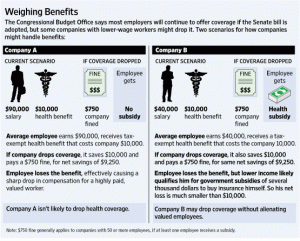“A nimble adversary” is how Obama characterized a bunch of rag-tag terrorists—Al Qaeda in the Arabian Peninsula—who had resorted to recruiting for their mission a clumsy, inept boy, about whom ample warnings existed in “The system.”
Mr. Abdulmutallab was not placed on the no-fly list “despite the government’s having information that showed him to be not only a threat, but also a threat with a visa to visit the United States.”
Inflating 23-year-old Umar Farouk Abdulmutallab’s abilities does wonders to lessen our failings, which are legion.
Remember and rehearse: What failed was the (intelligence) system. No flesh-and-blood was involved in the many monumental mistakes. All there was was an amorphous thing called “The system.”
Pray tell if you know of a private company, subject to market forces, getting away with assigning blame to their “system,” rather than to its constituent parts—individual operators. Such a firm would be without customers.
(And people who know they’d get fingered and fired from their private-sector jobs for such failings are clamoring for a public option to serve as competition to the health care insurance industry.)
Under the stumble-bumble Bush administration, we experienced, and forgave, the criminal negligence that facilitated the most devastating terrorist attack on US soil.
Condy Cow (CC) ignored “a 1999 report by the Library of Congress stating that suicide bombers belonging to al-Qaida could crash an aircraft into U.S. targets,” stating that it belonged to the realm of analysis, and wasn’t ‘actionable intelligence.'”
We’re still debating the same disconnected darn dots.
CC then blamed her ineptness on the need to reform Washington’s atrophied alphabet soup of intelligence agencies. Ten years on, the Obama administration is doing the same, although to his credit, the president has taken responsibility for the failures; says they embarrassed him, and accuses his people of letting him down (brownie point for Barack).
The bare-bones truth is that the National Security Council, headed by Rice, was an office created to advise the president on anything relating to national security and to facilitate inter-agency cooperation. “If suspicion existed – analytic, synthetic, prosaic or poetic – Rice should have put the squeeze on the system she oversaw.”
The same goes for the people (the same folks, really) operating “The System” today.
On Condy’s watch America experienced perhaps the worst intelligence lapse ever: Remember the Phoenix FBI agent who wrote a memorandum about the bin Ladenites who were training in U.S. flight schools? Agent Ken Williams’ report was very specific. Over and above the standard sloth the memo met in the Washington headquarters, it transpired that the FBI was as concerned about ‘racial profiling’ then as it is today.
Since Bush, the way we talk about security failures has changed little, bar some semantic tweaks. Neither will it. There are simply no incentives in a government “system” to make it amenable to corrective feedback. The reason nothing changes is because of the nature of “The System.”
Update (Jan. 8): And the concept of terrorism in its aspirational stage? What state-speak is that?

